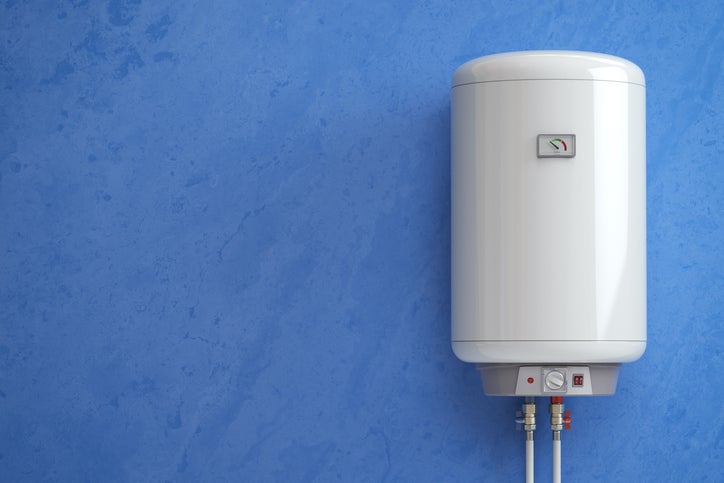Tankless vs. Traditional Water Heaters

If you need a new water heater, you may be debating between two popular options: a traditional storage tank and a tankless water heater. Learn how the two compare so you can make the right selection for your needs.
Hot Water Supply
Traditional water heaters are excellent at delivering large amounts of hot water to homes with multiple residents. As long as the tank is large enough, they can support dishwashers, washing machines and showers, even while running simultaneously. However, once the hot water runs out, you have to wait for it to heat back up again. This is problematic when taking back-to-back showers in the morning.
The limited flow rate of tankless water heaters is their biggest drawback. Most can only handle one hot water task at a time with an average flow rate of 2 to 4 gallons per minute. To overcome this problem, homes with higher hot water demands can always install more than one tankless water heater, including small point-of-use models in the bathroom, laundry room and kitchen. Plus, because tankless water heaters produce hot water on demand, you have a limitless supply for taking shower after shower.
Energy Efficiency
Tankless water heaters beat conventional storage tanks hands down in this category. They don’t experience the standby energy loss associated with storage tanks because they produce hot water on demand. If you decide to go tankless, you can expect to save between 30 and 70 percent on your water heating bills, even compared to the most energy-efficient storage tanks available.
Upfront Costs & Installation Considerations
Storage water heaters are large and bulky, taking up the majority of a utility closet in the process. However, they are quite affordable and easy to install, allowing for lower upfront costs.
Tankless models are compact, often small enough to mount to the wall or under the kitchen sink. They cost more to purchase and install than traditional storage tanks, but because they offer energy savings over time, they may end up costing less in the long run.
Longevity
Maintenance is critical for prolonging the life of a storage water heater, which can corrode, leak or build up dangerous internal pressure if neglected. Most manufacturers recommend replacement every 10 to 12 years.
Without the need to store large quantities of hot water, tankless water heaters are not prone to flooding and leaking. They also tend to last years longer than tanks because they’re less vulnerable to corrosion. This helps your investment in a high-quality tankless water heater go even further.
For more help making your final decision between a tankless and traditional water heater, please contact Bob Hoegler Plumbing at 732-521-0133. Tell us your needs and ask us your questions – we’ll help you reach a wise conclusion about what type is best for you. Then, we can install the water heater of your choice in your Central New Jersey home.
RECENT POSTS
categories
Archives
2024
2023
2022
2021
2020
2019
- December (2)
- November (2)
- October (2)
- September (2)
- August (2)
- July (2)
- June (2)
- May (2)
- April (2)
- March (2)
- February (2)
- January (2)

